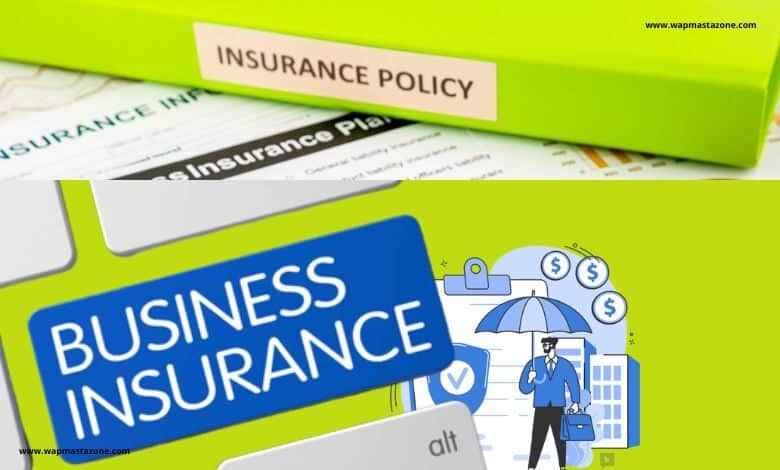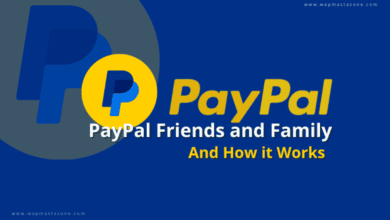
What is Business Insurance?
Business insurance, also known as commercial insurance, is a type of insurance that provides protection for businesses from financial losses that may occur due to unforeseen events, such as accidents, theft, lawsuits, natural disasters, and other risks. Business insurance helps business owners manage and reduce potential financial losses, protect their assets, and ensure that their business can continue to operate smoothly in the event of unexpected events.
Business insurance is essential for any business, regardless of its size or industry. It can help businesses to recover from unexpected losses, protect against liability claims, comply with legal requirements, and build confidence and trust with customers and stakeholders. As a Business owner, you should carefully assess your risk and choose the appropriate insurance coverage to ensure that your business is adequately protected. Working with an experienced insurance agent can also help business owners navigate the complex world of insurance and make informed decisions about their coverage needs.
There are different types of business insurance policies available, each covering specific types of risks and providing different levels of protection. Common types of business insurance include general liability insurance, property insurance, professional liability insurance, workers’ compensation insurance, cyber liability insurance, product liability insurance, business interruption insurance, directors and officers insurance, employment practices liability insurance, and commercial auto insurance.
Also read: Top 16 Free Business Directories
10 Types of Business Insurance
1. General Liability Insurance:
General liability insurance is one of the most common types of business insurance. It provides protection to businesses against third-party claims for bodily injury, property damage, and other related claims that may arise during the course of business operations.
This type of insurance covers a broad range of risks that businesses face, such as slip-and-fall accidents, property damage caused by employees, or advertising injuries. General liability insurance is particularly important for businesses that regularly interact with customers, vendors, or other third parties. General liability insurance typically covers the costs of legal defense and damages awarded in the event of a covered claim. The policy can also cover medical expenses incurred by third parties, as well as the costs of repairing or replacing damaged property.
General liability insurance can also help businesses to build trust and credibility with customers and partners. By having adequate insurance coverage, businesses can demonstrate their commitment to responsible and ethical business practices, and provide reassurance to those who interact with them.
Also read: What is General liability insurance
2. Property Insurance:
Property insurance is a type of business insurance that provides protection for physical assets, such as buildings, equipment, inventory, and other property owned by a business. This type of insurance can help businesses recover from losses caused by a range of risks, such as theft, fire, vandalism, or natural disasters.
Property insurance policies typically cover the cost of repairing or replacing damaged or destroyed property, up to the policy limit. Depending on the policy, property insurance may also cover the loss of income that results from damage to property, or the costs of temporary relocation while repairs are being made.
It can also help businesses comply with legal requirements, such as mortgage or lease agreements that require businesses to maintain certain levels of insurance coverage.
Businesses should also review their property insurance coverage regularly to ensure that it remains up to date and reflects any changes in the value or location of their property. This may involve working with an experienced insurance agent to understand their coverage needs and options.
Also read: Top Business Auto Loans
3. Professional Liability Insurance:
Professional liability insurance, also known as errors and omissions insurance, is a type of business insurance that provides protection to businesses against claims of negligence or inadequate work performance. This type of insurance is particularly important for businesses that provide professional services, such as lawyers, doctors, consultants, and other service providers.
Professional liability insurance typically covers the costs of legal defense and damages awarded in the event of a covered claim. This can include claims related to errors or omissions in professional services, as well as claims of negligence or breach of contract.
Also read: How to Choose a Good Web Hosting for your Website or Business
4. Workers’ Compensation Insurance:
Workers’ compensation insurance is a type of business insurance that provides protection to businesses and employees in the event of work-related injuries or illnesses. This type of insurance is typically required by law in most states, and helps to ensure that employees have access to medical care and financial support if they are injured or become ill on the job.
Workers’ compensation insurance typically covers the costs of medical treatment for work-related injuries or illnesses, as well as lost wages and disability benefits for employees who are unable to work due to a work-related injury or illness. It may also cover the costs of rehabilitation and vocational training for employees who need to transition to a different type of work due to a work-related injury or illness.
Also read: Maximizing Your Startup’s Potential with a Premium Domain Name
5. Cyber Liability Insurance:
Cyber liability insurance is a type of business insurance that provides protection to businesses against losses resulting from cyber attacks, data breaches, and other technology-related risks. This type of insurance has become increasingly important in recent years, as businesses of all sizes have become more reliant on technology and face greater risks of cyber attacks.
Cyber liability insurance typically covers the costs associated with a data breach or cyber attack, including legal expenses, notification costs, and costs associated with credit monitoring and other services to help affected individuals. It may also cover the costs of restoring data, repairing damaged systems, and loss of income due to the cyber incident.
Cyber liability insurance helps businesses to protect against the financial impact of a cyber-attack or data breach. It can also help businesses to comply with legal requirements related to data privacy and security, and to maintain the trust and confidence of their customers and partners.
Also read: 15 Best Free VPN for Android, iPhone and Computer Users
6. Product Liability Insurance:
Product liability insurance is a type of business insurance that provides protection to businesses that manufacture, distribute, or sell products against claims of injury or damage resulting from the use of their products. This type of insurance is important for businesses that produce or sell physical products, as it can help to protect against the financial impact of product-related lawsuits.
Product liability insurance typically covers the costs associated with defending against product-related claims, including legal expenses, settlements, and judgments. It may also cover the costs of product recalls and other product-related expenses.
Also read: Important Reasons Why you Need Pinterest to Promote your Business
7. Business Interruption Insurance:
Business interruption insurance, also known as business income insurance, is a type of business insurance that provides protection to businesses against losses resulting from interruptions to their operations. This type of insurance can help businesses to recover lost income and pay ongoing expenses in the event of a covered interruption, such as a natural disaster, fire, or other event that disrupts business operations.
Business interruption insurance typically covers the loss of income that results from a covered interruption, as well as the ongoing expenses that a business incurs while its operations are suspended. This may include expenses such as rent, utilities, and payroll. Business interruption insurance may also cover the costs of relocating a business or setting up temporary operations.
Also read: What is Business Liability Insurance?
8. Directors and Officers Insurance:
Directors and officers insurance, also known as D&O insurance, is a type of business insurance that provides protection to directors and officers of a company against lawsuits and other legal actions. This type of insurance can help to protect the personal assets of directors and officers in the event that they are held liable for actions or decisions made in their capacity as a company officer.
Directors and officers insurance typically covers the costs associated with defending against lawsuits and legal actions, including legal fees, settlements, and judgments. It may also cover the costs of investigations and other related expenses.
Also read: Domain Expiration – What Happens when a Domain Expires?
9. Employment Practices Liability Insurance:
Employment practices liability insurance (EPLI) is a type of business insurance that provides protection to businesses against claims of employment-related misconduct, such as discrimination, harassment, wrongful termination, and other violations of employee rights. This type of insurance can help businesses to defend against and manage the financial risks associated with employment-related claims.
EPLI typically covers the costs associated with defending against employment-related claims, including legal fees, settlements, and judgments. It may also cover the costs of investigations and other related expenses.
EPLI helps to protect businesses from the financial impact of employment-related claims, which can be significant and can damage a business’s reputation and employee morale. EPLI can also help businesses to comply with legal requirements related to employee rights and reduce the risk of employment-related claims.
Also read: Complete Guide to Domain Flipping
10. Commercial Auto Insurance:
Commercial auto insurance is a type of business insurance that provides coverage for vehicles used for business purposes, such as delivery vans, trucks, and company cars. This type of insurance can help businesses to protect their vehicles and employees in the event of accidents, theft, or other damages.
Commercial auto insurance typically covers the costs associated with repairing or replacing vehicles, as well as liability for injuries or property damage caused by the vehicle. It may also cover the costs of medical expenses and lost wages for employees who are injured while driving a company vehicle.
Commercial auto insurance is important because it helps to protect businesses from the financial impact of accidents and other incidents involving company vehicles. This can be especially important for businesses that rely on vehicles for their operations, such as delivery services or construction companies.



